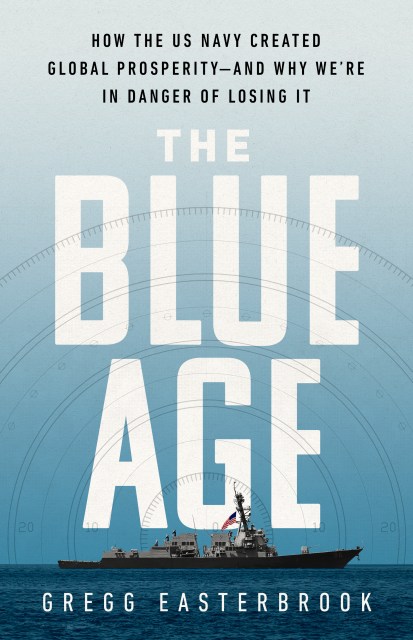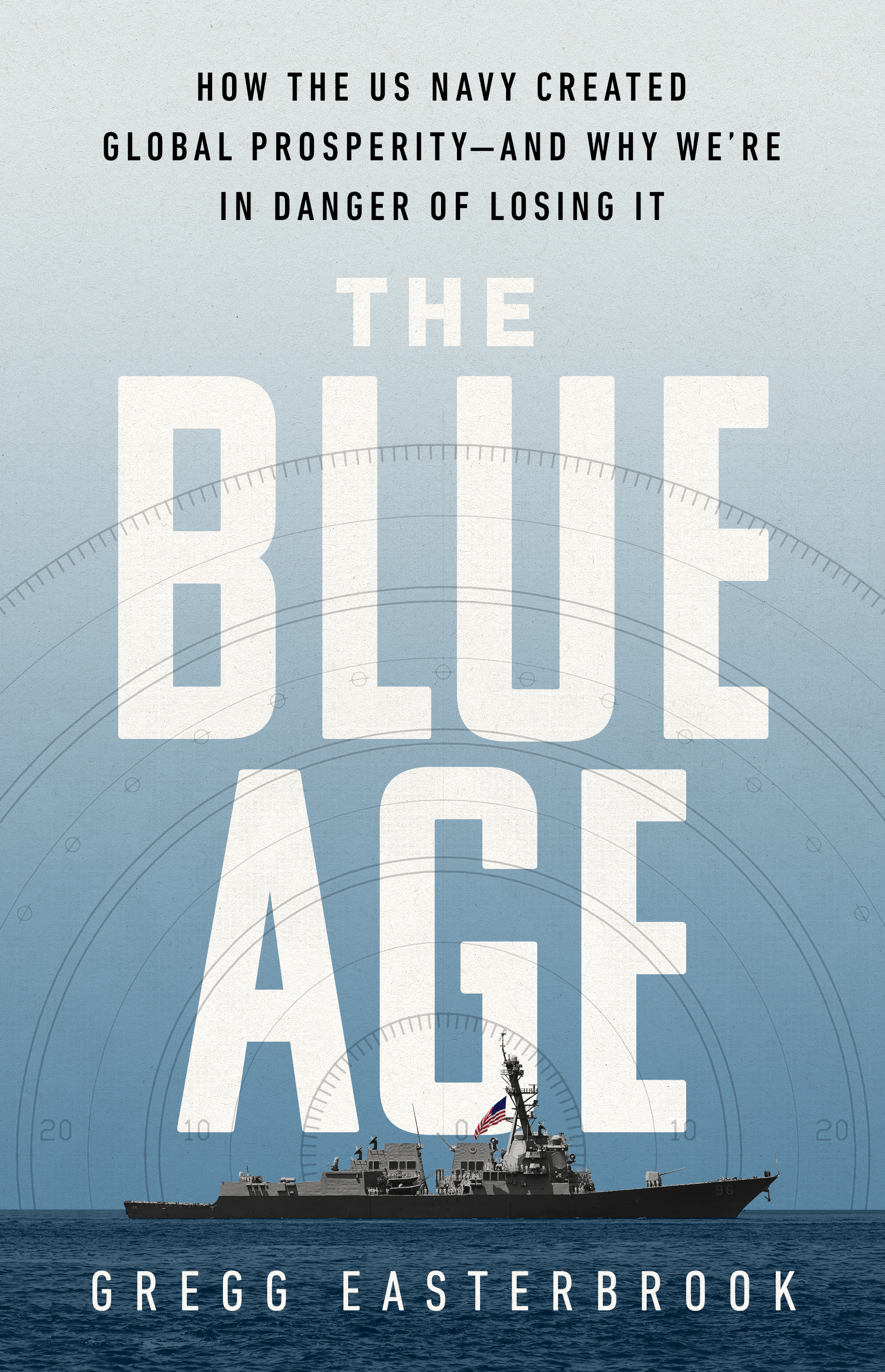The Blue Age
How the US Navy Created Global Prosperity--And Why We're in Danger of Losing It
Contributors
Read by Joseph Bearor
Buy from Other Retailers:
- On Sale
- Sep 7, 2021
- Publisher
- Hachette Audio
- ISBN-13
- 9781549119149
For decades, the Navy has stood sentinel over crucial waterways, ensuring safe passage of goods from nearly all nations. The result is the longest phase of peace on the waters since the Phoenicians, with rising living standards, more (total) jobs, and the dramatic decline of poverty in Asia.
But these prosperous times could be at an end. Today China is building warships at an extraordinary pace. India, Japan, Vietnam, and Europe are responding with more fighting ships. What will result from China’s rising naval might, particularly in the South China Sea? As ocean resources are shaped by climate change and new discoveries, will the world share them or fight over them? What will happen if America turns against free trade? Without American investment, the world could see a rise of supply shortages and seagoing conflict that would dwarf the impact of the container ship stuck in the Suez Canal.
Surveying naval history, economics, environmental threats, and great-power politics, The Blue Age makes an urgent argument about our oceans’ vital importance to the peace and prosperity of our global community.
Genre:
-
B>Admiral (ret.) James Stavridis“The Blue Age is brilliantly written, extremely well sourced, and remarkably accurate in its depiction of the centrality of the oceans to the well-being of our world. Set sail with the author and you will arrive at the port of enlightenment, with a deeper understanding of the sea —whether you are an experienced mariner or have always simply wondered why the oceans matter.”
-
B>Marcia McNutt, president, National Academy of Sciences“READ THIS BOOK! The Blue Age is a compelling account of how our unprecedented 75 years of pax oceanum came about, how fragile it might be, and what exactly is at stake.”
-
B>Evan Thomas, author of Sea of Thunder and John Paul Jones“Gregg Easterbrook is a genius at taking huge, complex, seemingly remote but deeply vital subjects, and making them into compelling, informative reading. With a vivid sense of history, clear thinking about the future, and a nice touch of irony and humor, he explains why our destiny lies on the waves of the blue oceans.”
-
—Jon Meacham, author of The Soul of America“Gregg Easterbrook’s engaging new book is at once a reminder and a warning. He brilliantly reacquaints us with the vital role of sea power and focuses the mind on how the destinies of nations often turn on who controls the oceans and waterways of an ever-shrinking world.”
-
—David Malpass, President, World Bank“A captivating geopolitical case for the power of the sea and the key role of the U.S. Navy -- as a preface to the author's controversial prescriptions for maritime power sharing and innovation.”
-
–Helen Rozwadowski, University of Connecticut - Avery Point“In this thought-provoking book, Gregg Easterbrook puts the oceans firmly in the center of a vitally important story about the past, present, and future.”
Formats and Prices
Price
$27.99Format
Format:
- Audiobook Download (Unabridged) $27.99
- ebook $17.99 $22.99 CAD
- Hardcover $30.00 $38.00 CAD







